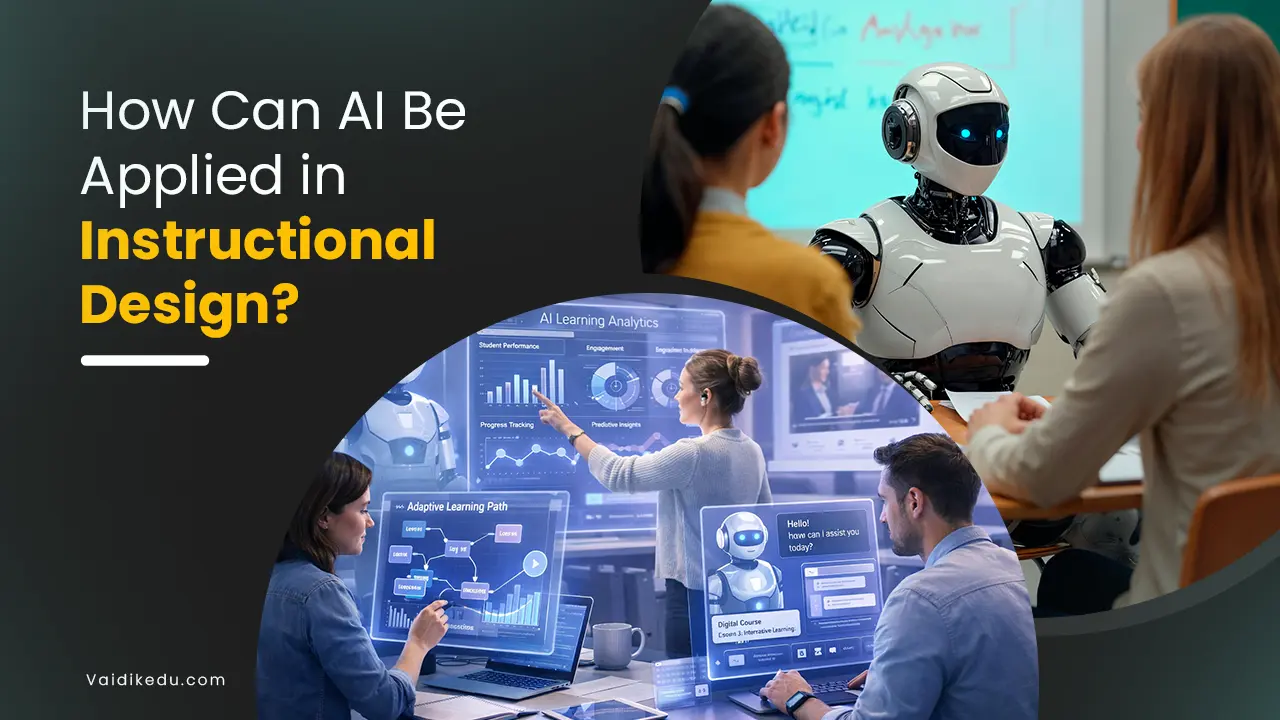Creating and reviewing exam papers has always been a meticulous and time-consuming task for educators. The process involves designing questions that test various levels of understanding, ensuring curriculum alignment, and maintaining fairness in evaluation.
Additionally, reviewing these papers for accuracy and relevance demands considerable effort. This is where Artificial Intelligence (AI) steps in as a game-changer.
AI has revolutionized education by streamlining complex processes, and exam paper creation is no exception. From generating balanced question papers in minutes to automating the review process, AI has made it easier for educators to focus on teaching rather than administrative burdens.
But what does this look like in practice? How effective is AI in simplifying these processes and what challenges does it bring?
This blog will delve into the advantages of AI in exam paper creation and review, discuss potential drawbacks, and explore solutions to overcome challenges.
We will also highlight how AI empowers educators and students while maintaining academic integrity.
Advantages of AI in Paper Creation And Review
Time Efficiency
One of the most significant advantages of using AI for exam paper creation is the drastic reduction in time spent on manual tasks.
- Instant Question Generation: AI tools can generate a wide range of questions–MCQs, descriptive, or analytical–within seconds. Educators can input topics or keywords, and the AI curates questions accordingly.
- Automated Formatting: AI systems automatically organize questions into structured formats, complete with sections, marks allocation, and instructions.
- Streamlined Review: AI-powered algorithms review questions for grammatical errors, redundancy, and alignment with learning objectives, saving hours of manual editing.
For instance, tools like PrepAI allows educators to create exam-ready question papers in minutes, freeing them up to focus on lesson planning or student engagement.
Personalized Question Papers
AI enables the creation of customized question papers tailored to different learning levels.
- Differentiated Learning: By analyzing individual student performance, AI can create question papers suited to varying abilities–challenging high achievers while supporting struggling learners.
- Topic Coverage: AI ensures comprehensive coverage of all syllabus topics, reducing the risk of overemphasis on certain areas.
- Adaptive Difficulty Levels: AI can generate questions of varying difficulty levels to assess basic understanding, critical thinking, and problem-solving skills.
Such personalization fosters inclusivity and ensures every student is adequately challenged.
Error Reduction
Human errors in exam paper creation–such as repeated questions or incorrect answers can compromise the quality of assessments. AI minimizes such risks.
- Accuracy in Data: AI systems cross-check answers and references to ensure accuracy.
- Avoiding Duplicates: AI algorithms detect and eliminate repeated questions across different sections.
- Compliance with Standards: AI ensures the paper adheres to prescribed forms and guidelines, avoiding last-minute corrections.
With these safeguards, AI enhances the credibility and reliability of exam papers.
- Enhanced Question Quality
AI brings depth and variety to exam papers.
- Bloom’s Taxonomy Integration: Many AI tools create questions based on Bloom’s Taxonomy, covering all cognitive levels–knowledge, comprehension, application, analysis, synthesis, and evaluation.
- Real-World Relevance: AI tools curate context-based questions, making exams more engaging and practical.
- Bias-Free Question: By analyzing language and structure, AI minimizes cultural, gender, or socioeconomic biases in questions.
This ensures that exams are not only comprehensive but also equitable and relevant.
- Simplified Review And Feedback
AI is equally transformative in the review process.
- Automated Grading: For objective questions like MCQs, AI provides instant grading, saving time and effort.
- Consistency in Evaluation: AI ensures uniformity in marking, eliminating subjectivity.
- Actionable Insights: AI analyzes student performance and provides detailed feedback, helping educators identify knowledge gaps and improve teaching methods.
For example, Editor AI not only creates question papers but also reviews answers, offering suggestions for better alignment with learning goals.
Challenges of Using AI in Exam Paper Creation And Review
Despite its numerous advantages, AI in exam paper creation is not without challenges.
Limited Creativity
AI relies on algorithms and data, which may limit its ability to generate truly innovative or creative questions.
- Solution: Educators can use AI-generated content as a foundation and incorporate their expertise to refine and enhance creativity.
Dependency on Technology
Over-reliance on AI tools may lead to reduced critical thinking or analytical skills among educators.
- Solution: Training programs can encourage educators to balance AI usage with manual input, ensuring a collaborative approach.
Data Privacy Concerns
AI systems require access to vast amounts of students and institutional data, raising concerns about privacy and security
- Solution: Schools must implement robust data protection policies and choose AI tools that comply with international privacy standards like GDPR.
Initial Setup Costs
Integrating AI into exam management systems can be expensive and time-intensive.
- Solution: Institutions can start with scalable AI solutions and gradually expand based on their needs and budgets.
Future Prospects of AI in Exam Paper Creation
The integration of AI in education is still evolving, and its potential is immense,
- Predictive Analysis: AI can predict student performance trends, enabling targeted interventions.
- Gamified Assessments: AI tools may introduce game-like elements into assessments, making exams more engaging.
- Integration with EdTech Platforms: Seamless integration with platforms like Google Classroom or Microsoft Teams can further streamline exam management.
Conclusion
AI has undeniably simplified the process of exam paper creation and review. By saving time, enhancing quality, and ensuring fairness, AI empowers educators to focus on what they do best–teaching and mentoring students.
However, the key to successful AI integration lies in maintaining a balance. Educators must view AI as a tool to complement their skills not replace them.
As technology continues to evolve, the role of AI in education will only grow. By addressing challenges and leveraging its strengths, we can create an education system that is efficient, innovative, and student-centric.
Frequently Asked Questions
No, AI is a tool to assist educators. While it simplifies tasks, the educator’s expertise is crucial for ensuring the quality and relevance of questions.
Time efficiency and error reduction are the most significant advantages, allowing educators to focus on teaching and student development.
Yes, most AI tools are designed to follow curriculum guidelines and maintain accuracy. However, educators should review the papers to ensure alignment with learning objectives.









